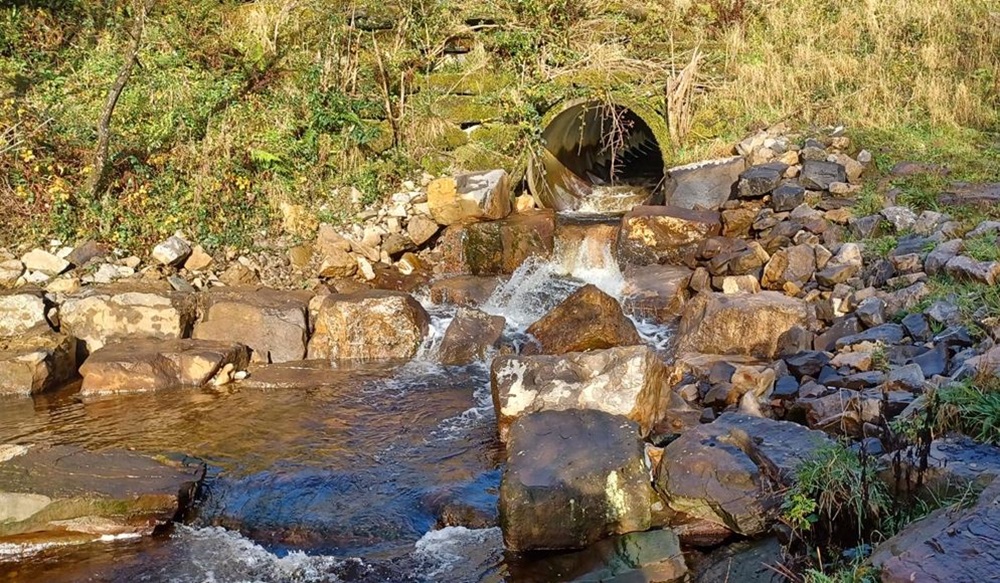Project to restore river damaged by minewater pollution completed

A five-year project to restore a river which suffered from minewater pollution, as a legacy of its industrial past has been completed
The work on the River Pelenna in Afan, Neath Port Talbot, aims to open up breeding grounds for migratory fish.
Natural Resources Wales (NRW) began work on the scheme in 2019 to unlock a number of barriers along the Pelenna which were preventing fish from reaching important gravel beds where they spawn and lay their eggs.
The latest phase of the project has seen the modification of both a weir and culvert to allow fish to pass through easily.
Ramp
A series of rocks have been permanently installed into the river acting as a ‘rocky ramp’ to the reduce the height of the barrier and provide a route through for fish. Oak baffles have also been installed within a forestry culvert to increase water depth through and provide areas for fish to rest.
Previous work on the same stretch saw similar schemes put in place to remove barriers to fish, along with work to improve water quality.
Suzanne Hearn, Team Leader, Freshwater Ecosystems and Fisheries Management, from NRW said:
“NRW has an ambitious programme of restore rivers which have been modified and to reintroduce natural habitat which has been lost due to historic human activity.
“This revitalised habitat could be vital to the survival for species like Salmon, which is are increasingly at risk of becoming extinct on some rivers in Wales.
“The most recent works on the Pelenna supports a long history of improvements in the area, and we hope that better access to spawning grounds will in time improve salmon populations locally and in the wider Afan catchment.”
Afan
The River Pelenna is a tributary of the River Afan and has suffered poor ecology as a consequence of pollution due to the area’s industrial past.
Previous projects by the Coal Authority and NRW’s predecessor Environment Agency Wales have improved water quality, but fish populations have failed to re-establish due to the numerous barriers blocking access to spawning grounds.
Physical modifications to rivers, such as weirs, remain the number one reason why many rivers are failing to meet good ecological status, due to the impact they have on habitat and species.
The project has been delivered between NRW’s River Restoration and Salmon for Tomorrow programmes.
The total cost was approximately £240,000 and was funded by the Welsh Government Nature and Climate Emergencies Capital Programme. The programme supports a number of environmental priorities including river restoration, peatland restoration, metal mine remediation, fisheries, water quality and national forests.
Support our Nation today
For the price of a cup of coffee a month you can help us create an independent, not-for-profit, national news service for the people of Wales, by the people of Wales.







Baby steps…